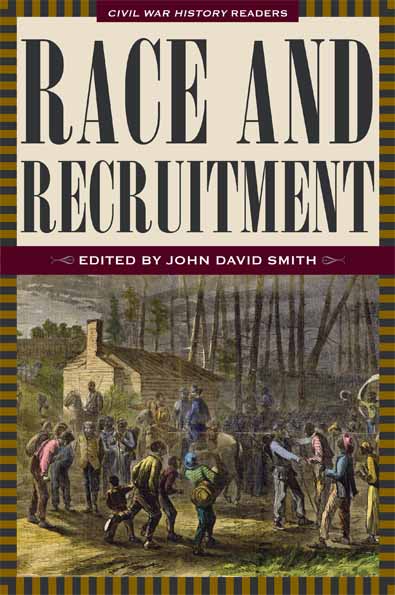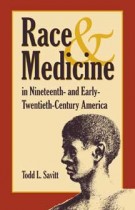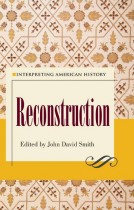Race and Recruitment
Civil War History Readers, Vol. 2
Civil War Era, Civil War History Readers, Discover Black History, History, Understanding Civil War HistoryJohn David Smith
“Race and Recruitment pulls readers right into the middle of the most important scholarly conversations about race, slavery, and the Civil War that have taken place over the last half century. Each of these sixteen essays has stood the test of time, asking the big questions and offering the answers that have forever changed the way historians talk about the middle of the nineteenth century. The resulting volume is a showcase of compelling research, writing, and thinking from some of the nation’s most influential historians. It should command a prominent spot on Civil War bookshelves.” — Amy Murrell Taylor, author of The Divided Family in Civil War America
For more than sixty years the journal Civil War History has presented the best original scholarship in the study of America’s greatest struggle. The Kent State University Press is pleased to present this second volume in its multivolume series reintroducing the most influential of the more than 500 articles published in the journal. From military command, strategy, and tactics, to political leadership, race, abolitionism, the draft, and women’s issues, from the war’s causes to its aftermath and Reconstruction, Civil War History has published pioneering and provocative analyses of the determining aspects of the Middle Period.
In this second volume of the series, John David Smith has selected groundbreaking essays by David Blight, Eugene Genovese, Mark Neely Jr., Brooks Simpson, and other scholars that examine slavery, abolitionism, emancipation, Lincoln and race, and African Americans as soldiers and veterans. His introduction assesses the contribution of each article to our understanding of the Civil War era.
Those with an interest in the issues, struggles, and controversies that divided a nation will welcome this essential collection.
Harold M. Hyman, Lincoln and Equal Rights for Negroes: The Irrelevancy of the “Wadsworth Letter”
Ludwell H. Johnson, Lincoln and Equal Rights: A Reply
Eugene D. Genovese, Rebelliousness and Docility in the Negro Slave: A Critique of the Elkins Thesis
Don E. Fehrenbacher, Only His Stepchildren: Lincoln and the Negro
Michael J. Kurtz, Emancipation in the Federal City
Mark E. Neely Jr., Abraham Lincoln and Black Colonization: Benjamin Butler’s Spurious Testimony
Lawrence J. Friedman, The Gerrit Smith Circle: Abolitionism in the Burned-Over District
Reinhard O. Johnson, The Liberty Party in Massachusetts, 1840–1848: Antislavery Third Party Politics in the Bay State
John Cimprich and Robert C. Mainfort Jr., Fort Pillow Revisited: New Evidence about an Old Controversy
David W. Blight, Frederick Douglass and the American Apocalypse
Brooks D. Simpson, “The Doom of Slavery”: Ulysses S. Grant, War Aims, and Emancipation, 1861–1863
James P. McClure, Leigh Johnsen, Kathleen Norman, and Michael Vanderlan, Circumventing the Dred Scott Decision: Edward Bates, Salmon P. Chase, and the Citizenship of African Americans
Donald R. Shaffer, “I Do Not Suppose That Uncle Sam Looks at the Skin”: African Americans and the Civil War Pension System, 1865–1934
Allen C. Guelzo, Defending Emancipation: Abraham Lincoln and the Conkling Letter, 1863
Andre Fleche, “Shoulder to Shoulder as Comrades Tried”: Black and White Union Veterans and Civil War Memory
M. Keith Harris, Slavery, Emancipation, and Veterans of the Union Cause: Commemorating Freedom in the Era of Reconciliation, 1885–1915 struggle.





